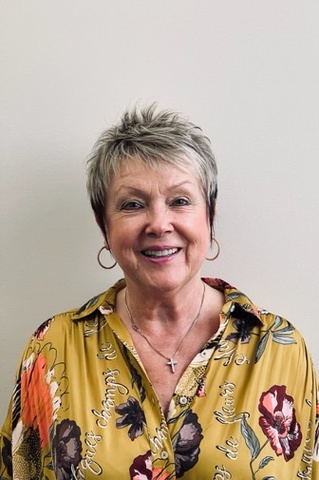University of Iowa staff who have demonstrated strong leadership at various stages of their careers in information technology organizations were presented with IT Leadership Awards at the UI Tech Forum on June 5 at the Iowa Memorial Union.
The awards were presented by the IT Leadership Development Team, Associate Vice President and Chief Information Officer (CIO) Steve Fleagle, and Health Care Associate Vice President and CIO Lee Carmen.
Lifetime Achievement: Marianne Holton

Marianne Holton, administrative services specialist in the Office of Teaching, Learning, and Technology (OTLT) in Information Technology Services (ITS) won the Lifetime Achievement IT Leadership Award for her constant contributions to the success of information technology at the UI over nearly 40 years of service. She demonstrates a constant ability to fill gaps in services with outstanding customer support. Her contributions are almost always been behind the scenes as a support provider and team enabler.
As part of the Learning Spaces Team in OTLT for more than 20 years, she regularly takes ownership of issues students or colleagues bring to her. Her priority is always her customers and she is a tireless advocate for them. Holton plays a key role in planning and coordinating events, supply procurement, and building resource management. She employs a cadre of talented young people who provide administrative support across the IT organization. Her student positions are sought-after roles, as she has been recognized for her mentoring ability. Her team’s services are in demand due the talent and work ethic they bring, and their adaptability to a variety of work assignments and settings. Holton’s impact in the UI information technology community and with students has been far-reaching and deep.
Transformational Achievement: Julie Janecek, Ben Rogers

Julie Janecek, assistant director in the Application Services division in Health Care Information Systems (HCIS), has demonstrated dedication to the Community Connect Iowa (CCI) program, the success of customers, and employee satisfaction, which has resurrected the program and allowed it to thrive. Her clinical background as a nurse combined with her leadership and technical skills give her credibility that allowed her to establish a rapport at each site. These working relationships allowed her to implement a level of standardization that was previously missing. She advocated for the sites and her staff and to standardize the overall implementation process. She helped the sites leverage the HCIS ticketing system to streamline requests for service, participates in key implementations and projects that impact all users, and oversees all Epic applications and any third-party integrations or systems CCI sites may have.
Ben Rogers, executive director of ITS-Enterprise Infrastructure (EI), leads with transparency, honesty and integrity. He thinks strategically, builds relationships, and creatively solves problems. He looks at issues from all perspectives and fosters professional growth. In EI, Rogers elevated planning, internal processes, and coordination. He reduced the project backlog and technical debt through significant technology upgrade projects. Previously, as leader of ITS Research Services (RS) for over eight years, he led deployment of the first large-scale shared campus high-performance computing (HPC) system and grew HPC as a campus service. Rogers acted as associate director for informatics services in the UI3 initiative, created the campus research data storage model, and grew RS into a team of 15 supporting research IT services used by all disciplines. He also led efforts to codify and normalize remote work in ITS.
Team Achievement: Network Engineering Services

Middle row, left to right: Trevor Timperley, Chris Meier, Riley Mattice, Austin Stumpf, Neil Johnson.
Bottom row, left to right: Clark Cooper, Austin Shebek, Michael McClure.
The Network Engineering Services (NES) team in ITS-EI, under the leadership of IT Director Jeff Gillitzer, has done a tremendous job engaging campus for feedback on network and internet connectivity needs and developed a plan to upgrade and enhance the campus, data center, and internet infrastructure. Existing hardware is aging and NES designed a new network architecture that embraces new technology. The network transformation will position the UI for success and security for the next decade and beyond. The impact cannot be overstated, as the network is a key enabling technology for all campus missions.
Equally impactful has been a change in the team’s mindset. As several employees retired or moved to other opportunities, the team collaborated to identify areas of need and increased knowledge to support campus. This level of teamwork and cooperation has made working on network-related projects a positive experience for campus partners. The team is customer-focused, collaborative, communicative, and forward-looking. They actively include other perspectives as projects are being developed, proactively partner with many groups across campus, and effectively leverage relationships to help develop processes. The growth of both individuals and the team as a whole has been tremendous.
Community Engagement: Ryan West

Ryan West, senior IT support consultant in ITS-Enterprise Services, has been part of the university information technology community for more than two decades, connecting and mentoring hundreds of IT colleagues. He is always available to listen and guide. He does a great job of being a sounding board and connecting people with work-related questions. If he doesn't know the answer, he takes time to find out the best person to contact for each scenario. West is a strong member of the IT community who is always there to help with a smile. The connections he helps individuals make within and beyond information technology are how he builds community.
Unsung Hero: Dave Bronder, Teresa Franklin, Mike Haxton, Dan Metzler

Dave Bronder, senior systems architect in ITS-EI, has devoted three decades of service to the UI. He has been a go-to individual when things go wrong, a beacon of information to design and administer complex systems with broad impact, and a constant reminder to focus on details and customer service. In addition to his instinct to run towards the emergency rather than away, he is a de-facto resource for input on design and implementation of complex systems in ITS and will gladly lend his technical expertise to solve a problem. Bronder’s tireless leadership during the Storage Area Network (SAN) outage in summer 2022 were critical to the success of the recovery efforts and an inspiration to many staff who also contributed to that effort. He does all of this in a professional, respectful way, and with the humility of someone who is truly dedicated to the delivery of resilient IT and ongoing service to the university.
Teresa Franklin, senior IT director of communication and collaboration services at UI Hospitals and Clinics (UI Health Care), leads her teams wholeheartedly and shows every day that she cares about the success of the work and the people.
She is not afraid of a challenge and has taken on leadership roles in complex projects, including implementing Office 365 for health care and upgrades of several legacy systems.
She leads with infectious energy and enthusiasm and handles high-stress situations with grace. Franklin established the Clinical Communication Advisory (CCA) Task Force to gather input as tools and features are reviewed or implemented. She filled a leadership gap for the team of hospital operators until a new manager was on board, and together they hired several hard-to-fill positions and cultivated a positive working environment. Franklin completed the MOR IT Leadership Program, brought knowledge and excitement back to her team, and has given others the opportunity to develop leadership skills.

Mike Haxton, IT asset management supervisor in HCIS, is involved in nearly every IT order that is placed for the hospital. He is one of the behind-the-scenes staff who inventories and processes technical equipment used by UI Health Care—an extremely important step in tracking equipment used throughout the organization. Haxton is the primary employee delivering technical equipment to the main campus and various UI Health Care locations. He ensures equipment is transported safely and on schedule so HCIS staff can configure, deliver, and install items for end users. He is always willing to go above and beyond to make sure tasks are completed properly and resolves questions or concerns quickly. He is an extremely pleasant and kind person, and anyone who interacts with him can attest that his positive attitude contributes to the department's success. The systems he has helped create for the inventory team and HCIS continue to ensure information is accurately tracked and updated while always following guidelines.
Dan Metzler, senior systems architect in ITS-EI, consistently demonstrates leadership by providing exceptional support and motivating colleagues in OneIT. He is always there when needed, working tirelessly behind the scenes to ensure everything runs smoothly. His selflessness, dedication, and unwavering commitment to excellence are an inspiration to others. His contributions are significant and diverse, ranging far outside his expected responsibilities. He has always been willing to share his knowledge and expertise, helping others to grow and develop their skills. He has been a champion for IT automation, leading many trainings for colleagues. Metzler provides technical expertise and strategic thinking through development and implementation of many IT projects. He has played an instrumental role in the success of these projects, and his contributions have been invaluable to the organization.
Rising Star: Amanda Blodgett, Jason Gardner

Amanda Blodgett, assistant director of Clinical Application Services in HCIS, was hired as an entry-level developer in HCIS. With her work ethic, commitment to detail and documentation, strong communication skills, and desire to make things better for users, she quickly became a team lead in development for Epic’s radiology implementation and then moved to lead a larger team working on nursing functionality in Epic. She has led through many demanding projects including Epic upgrades and many changes required to handle the pandemic. Blodgett champions process improvements and leads groups to solve problems and think strategically. Through communication, encouragement, decisiveness, and delegation, she helps everyone around her work to achieve common goals.
Jason Gardner, lead application developer in HCIS-Foundations, came from a manufacturing background but had drifted into management and become a de facto expert on the computer systems at his job. He came to HCIS with a great passion for IT and completed his computer science degree while working. This passion has resulted in him moving from an application developer role to a team lead. Gardner led the modernization of identity management process, building connections across campus with a mindset of collaboration and openness to change that was critical to the successful outcome. He leads a team that supports key foundational elements of the electronic health record.